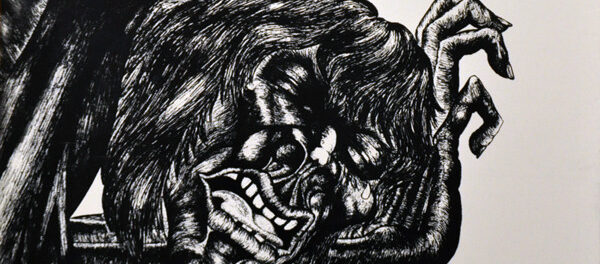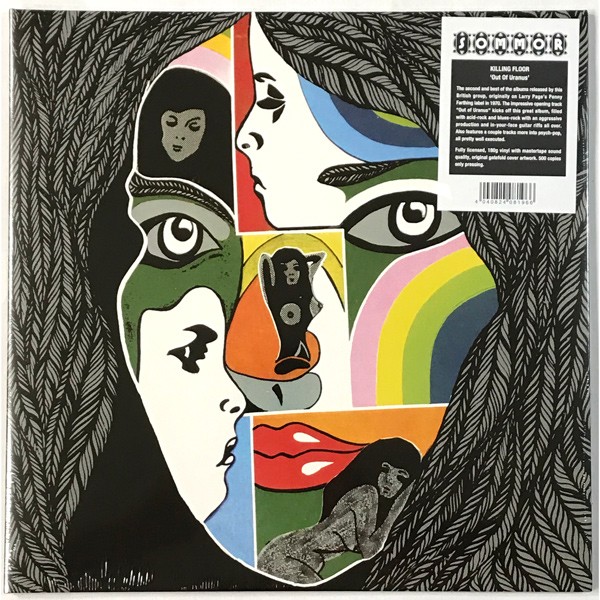5 Obscure Rock / Metal Albums From 1970 You NEED To Hear!
Obscure yet utterly essential....

1970 may have seen the release of Black Sabbath‘s seismic self titled debut and it’s follow-up, Paranoid, Deep Purple‘s inimitable In Rock and Led Zeppelin’s folky III, but it was a year which also gave us more than a few unsung classics which deserve higher praise…..
Comus – First Utterance [UK]
:format(jpeg):mode_rgb():quality(90)/discogs-images/R-807190-1288650355.jpeg.jpg)
In Greek mythology, Comus (Ancient Greek: Κῶμος) was the god of festivity and nocturnal dalliances and the progressive folk rock of the UK band of the same name was equally as mischievous, and informed by a macabre sense of the bizarre.
Drawing on mythology, mental illness and martyrdom, Comus‘s debut album, First Utterance, was notable for its unique blend of progressive rock, psychedelia, folk and paganism and its pastoral brilliance invoked a strong sense of fear and hysteria, particularly on the sublime yet unsettling “Diana”.
A unique and bewitching album from a band whose progressive tendencies were unrivalled at the turn of the 1970’s.
Frijid Pink – Defrosted [USA]
:format(jpeg):mode_rgb():quality(90)/discogs-images/R-4323908-1361772280-4125.jpeg.jpg)
Built on raw as sandpaper vocals and borderline proto doom metal/blues rock, Frijid Pink‘s Defrosted is another semi-lost classic that demands to be fully digested. “Black Lace” (not a reference to those “Agadoo” numpty’s as far as we know) deserves to be lauded as a classic alone, with its rough around the edges blues melding Deep Purple‘s “Mistreated” (4 years before that classic was even released) with The Groundhogs fuzzy preamble for psych-out flights of fancy.
Entirely of its period, Frijid Pink‘s finest album comes from the flower-power movement, with “Sing A Song For Freedom’s” Creedance Clearwater Revival harmonies, the Procul Harem mellotron of “I’ll Never Be Lonely” and the heartfelt, Cream-inspired “Bye Bye Blues” intrinsically dating Defrosted as a relic of the late 60’s and early 70’s…..but an endlessly rewarding amalgamation of the raw roots of rock and metal nonetheless.
The Human Beast – Volume 1 [UK]
:format(jpeg):mode_rgb():quality(90)/discogs-images/R-12788076-1544603547-3069.jpeg.jpg)
With The Human Beast‘s roots (understandably) entrenched in the psychedelic rock of the 60’s and all manner of Hendrix and Cream influences – think “World Of Pain”/ “Dance The Night Away” as opposed to “Sunshine Of Your Love” – this power trio may have plied their trade in the relatively melodic end of 70’s hard rock/psychedelic rock but their funk-infused power-tunes demonstrated a band with major promise. Admittedly, the loose ‘jam’ nature of Volume 1 proved to be down to a ridiculously limited 12 hour recording time but this does little to hamper proceedings.
See-sawing from reverb-drenched, whip-crack riffs to blues introspection – and neatly topped off with Eastern tinged riffs, endless fills and attention-deficit percussion – this relentlessly dark excursion into corners unexplored remains a riveting listen.
Killing Floor – Out Of Uranus [UK]

Insanely talented drumming and progressive work-outs mark Killing Floor‘s second album as a blues-rock behemoth, with its distinctly British late-60’s sound hardened for a new decade craving frenzied riffing and heads-down improvisation over nuanced subtlety.
“Soon There Will Be Everything” may hark back to simpler, trippier times but the likes of the aforementioned “Where Nobody Ever Goes” were rocking affairs drawing on the influence of Led Zeppelin and co.
Incidentally, was David Bowie playing particular attention to “Lost Alone” when writing “The Jean Genie”? In places, the similarities are indeed striking!
Warpig – Warpig [Canada]
:format(jpeg):mode_rgb():quality(90)/discogs-images/R-3243092-1322041676.jpeg.jpg)
Proto-metal of the highest order, the one and only album from Canada’s Warpig may have indicated more than a little Black Sabbath worship but Warpig were instead heavily indebted to the organ-led, riff-fests of Deep Purple as opposed to Tony Iommi’s crushing proto-doom.
In fact the more familiar likes of Uriah Heep and Led Zeppelin provide tidier touchstones with Warpig matching these household names pound for pound without receiving the plaudits.
These songs were exemplary with “Tough Nuts” bringing the malevolence (and a cast-iron riff) while “The Moth” added a prog flourish with its devious rhythms; resulting in an album of surprising depth and power.
Considering the era, Warpig‘s self titled debut was more influential than anyone would care to admit!









Leave a comment